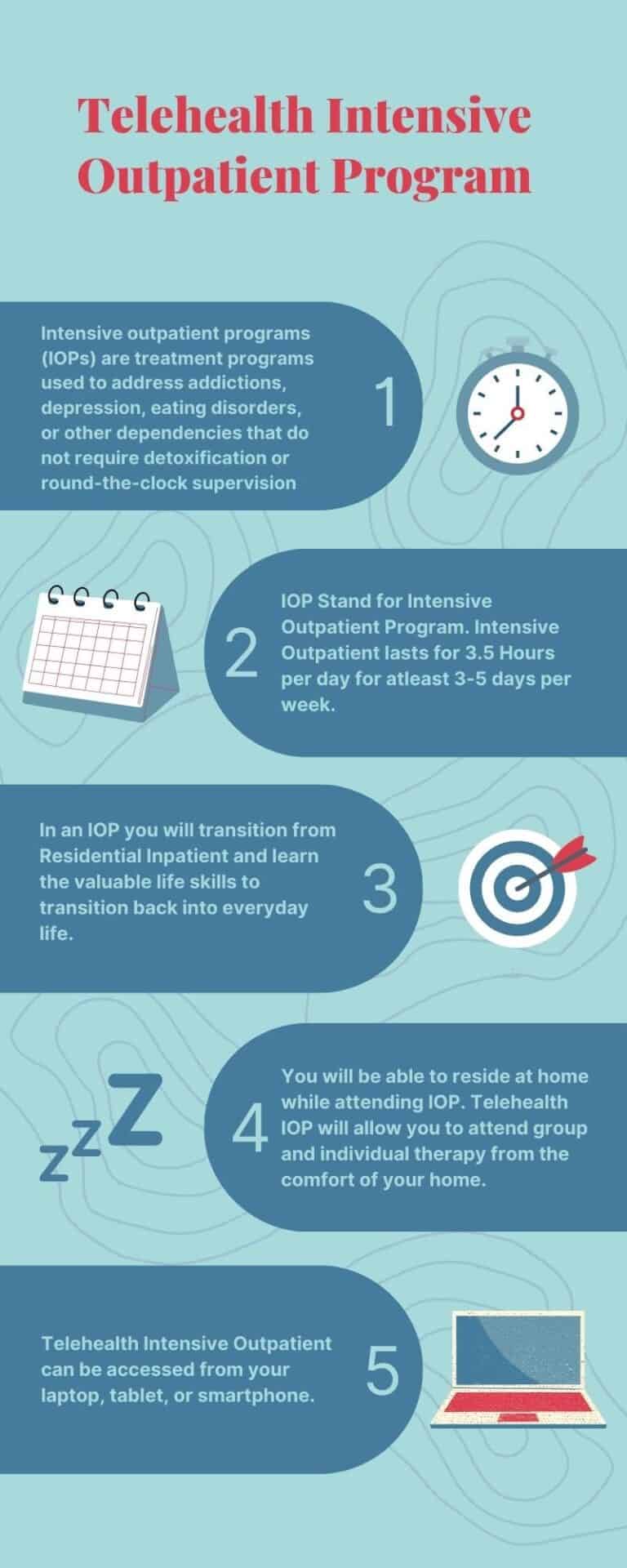Top Reasons to Think About an Intensive Outpatient Program (IOP) for Mental Wellness.
Top Reasons to Think About an Intensive Outpatient Program (IOP) for Mental Wellness.
Blog Article
The Impact of Holistic Therapies on Mind-Body Healing in an Extensive Outpatient Program
In the realm of intensive outpatient programs, the incorporation of all natural treatments has sparked significant passion and dispute among professionals in the field of psychological health and wellness and wellness. The exploration of different techniques, such as yoga exercise, meditation, acupuncture, and mindfulness methods, raises inquiries concerning their effectiveness in promoting mind-body healing for individuals undertaking therapy. As the demand for extensive and integrative treatment expands, recognizing the influence of these holistic interventions within the structured framework of an intensive outpatient program comes to be significantly crucial. The prospective synergy between standard therapeutic methods and holistic techniques in fostering all natural well-being continues to be a subject ripe for exploration and evaluation.
Integrating Holistic Therapies in IOP
Including alternative treatments into Extensive Outpatient Programs (IOP) can boost the overall wellness and therapy outcomes of individuals looking for mental wellness support. Alternative treatments concentrate on treating the whole person, resolving not only the signs and symptoms but likewise the underlying reasons of mental health and wellness issues. By incorporating techniques such as yoga, meditation, art therapy, and acupuncture into IOP settings, individuals can experience an extra comprehensive approach to their treatment.

Advantages of Yoga Exercise and Meditation
By infusing IOP settings with all natural treatments like yoga exercise and meditation, individuals can access a series of advantages that add to their mental and emotional well-being. Yoga exercise, with its concentrate on physical positions, breathing techniques, and mindfulness, can help people minimize tension, stress and anxiety, and depression. The practice of yoga exercise advertises leisure and enhances overall state of mind by launching endorphins, the body's all-natural feel-good chemicals. In addition, yoga enhances self-awareness and cultivates a sense of internal tranquility, which can be especially useful for individuals undertaking extensive outpatient treatment.

Acupuncture for Mind-Body Recovery
Acupuncture, a standard Chinese medicine practice involving the insertion of slim needles right into particular points on the body, supplies an one-of-a-kind technique to mind-body recovery by targeting energy flow and advertising holistic wellness. This old strategy is based on the concept of Qi, the body's essential power, streaming along meridians or pathways. By boosting specific acupoints, acupuncturists intend to bring back the balance of Qi, which is thought to be crucial for general health and health.
In the context of mind-body healing, acupuncture has actually revealed promising cause minimizing stress, anxiety, and clinical depression by controling the body's physiological action to these conditions. Study suggests that acupuncture can aid release endorphins, the body's all-natural painkillers, and manage neurotransmitters to boost mood and emotional health. Additionally, acupuncture sessions are usually gone along with by a feeling of relaxation and tranquility, which can add to a much more balanced psychological state.
Additionally, acupuncture is progressively being integrated right into Western medication practices to enhance conventional treatments for numerous psychological wellness conditions, supplying an alternative method that considers the interconnectedness of the body and mind in promoting recovery and wellness. Intensive Outpatient Program (IOP).
Mindfulness Techniques in Treatment
Expanding on the realm of alternative treatments, mindfulness techniques play an essential role in therapy by promoting a much deeper connection in between the mind and body for overall wellness. Mindfulness, rooted in old contemplative methods, includes paying interest to today moment non-judgmentally. In the context of an extensive outpatient program, integrating mindfulness methods can aid people establish self-awareness, manage feelings, and reduce tension levels. With mindfulness meditation, individuals can cultivate an increased sense of understanding of their thoughts, feelings, and bodily feelings, promoting a higher understanding of the interconnectedness between physical and mental wellness.
By motivating people to observe their thoughts without attachment try these out or judgment, mindfulness promotes a feeling of acceptance and concern in the direction of oneself. Ultimately, integrating mindfulness methods into therapy plans can equip individuals to proactively participate in their recovery trip and promote all natural wellness.

Reviewing All Natural Interventions' Efficiency

Qualitative assessments, on the other hand, involve gathering subjective responses from individuals regarding their experiences with all natural interventions. This qualitative data can use beneficial insights into the perceived advantages of these treatments on individuals' overall health, lifestyle, and coping devices. By integrating quantitative data with qualitative responses, researchers can gain an extra alternative understanding of the effectiveness of these treatments in advertising mind-body recovery within an intensive outpatient program. Such evaluations are essential for educating evidence-based methods and enhancing holistic therapy methods for individuals looking for detailed wellness.
Final Thought
Finally, the combination of all natural treatments such as yoga, meditation, acupuncture, and mindfulness strategies in an intensive outpatient program can have a considerable influence on mind-body healing. These treatments use a more extensive technique to therapy by attending to the physical, psychological, and spiritual aspects of an individual's wellness - Intensive Outpatient Program (IOP). Reviewing the efficacy of these alternative interventions is essential in recognizing their prospective benefits in boosting the general healing process for people in an outpatient setup
Report this page